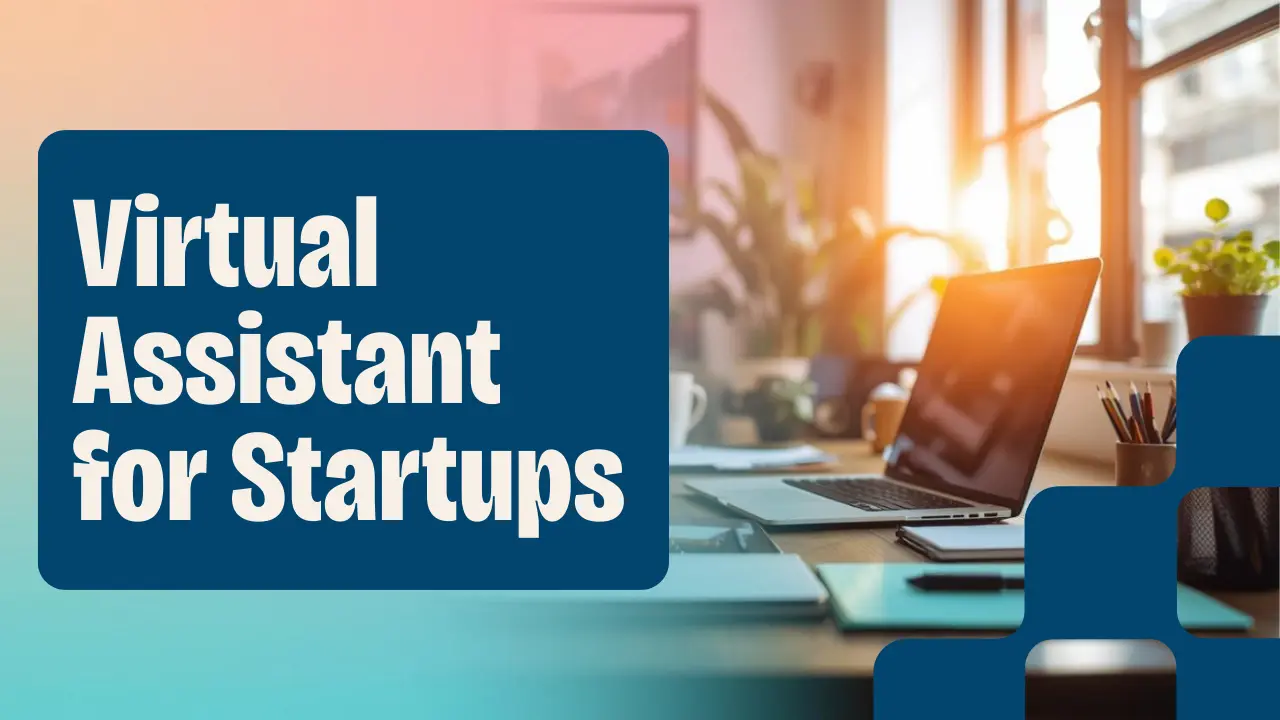What Does an Executive Assistant Do?
Picture this: it’s 7:45 a.m., and the executive’s phone is already buzzing. Flights need rescheduling, a client’s meeting was moved up, and someone accidentally double-booked a conference room. Yet by the time the executive sits down with their coffee, everything is already fixed. The calendar’s clean, the notes are ready, and even the lunch order magically appears at noon.
That’s the daily magic of an executive assistant—often called an EA. They’re the calm in a fast-paced storm, the right hand of top-level leaders, and the person who keeps entire companies running smoothly. Without them, even the sharpest executives would be buried under administrative chaos instead of focusing on strategy and growth.
At Oceans Talent, we’ve seen firsthand how an exceptional EA transforms a leader’s day from chaos to clarity. In short, the executive assistant is the quiet force multiplier who turns “busy” into “productive.” But what exactly does an EA do all day? Let’s lift the curtain.
Understanding the Role of an Executive Assistant
An executive assistant works directly with high-level executives—CEOs, presidents, directors, and business owners—to handle a blend of administrative and strategic work. The role goes far beyond answering phone calls or scheduling meetings. Think of it as being the operations engine behind an executive’s professional life.
While an administrative assistant might support a department or team, an executive assistant provides administrative support exclusively for top leadership. They manage calendars, organize files, handle confidential information, and oversee communications, ensuring that the executive’s workload stays balanced and efficient.
At Oceans Talent, we understand that a great EA is more than a task manager—they’re a trusted partner who ensures leadership can focus on what truly drives results. An executive assistant’s job description is intentionally broad, because their tasks depend on the executive’s needs. On any given day, an EA might be:
- Managing the executive’s schedule and prioritizing meetings
- Handling administrative tasks such as travel arrangements or expense reports
- Overseeing special projects that require cross-department coordination
- Acting as a stakeholder liaison between the executive and the rest of the company
Simply put, the EA’s main mission is allowing them to focus on strategic goals while someone else handles the details.
Core Responsibilities of an Executive Assistant
Managing Time Like a Pro
A great executive assistant is a master of time—both theirs and the executive’s. They schedule meetings, juggle appointments, and make sure no one gets double-booked. When things inevitably shift (and they always do), the EA calmly rearranges the puzzle until every piece fits again.
Whether it’s a small business owner or the CEO of a major company, every leader relies on their EA to make sure the day flows without friction. Scheduling meetings, tracking follow-ups, and creating daily briefings are part of the rhythm that keeps the executive office running smoothly.
Handling Administrative Tasks and Travel Arrangements
The second pillar of the job is logistics. Making travel arrangements may sound simple until you’re managing multiple time zones, hotel confirmations, and last-minute flight changes. The executive assistant takes care of all that—and does it with precision.
Their day might include organizing files, booking conference venues, or coordinating catering for board meetings. The EA also ensures expense reports and purchase requests are processed without delay, making sure operations stay financially tidy.
Acting as the Executive’s Gatekeeper
One of the most critical skills for executive assistants is communication. They’re the first point of contact for many stakeholders—employees, partners, even potential business partners—and they must protect the executive’s time while maintaining professionalism.
This means filtering messages, prioritizing calls, and handling inquiries with grace. A strong EA knows when to step in, when to delegate, and when something needs immediate attention from the boss.
At Oceans, we know that successful gatekeeping is about more than guarding time—it’s about preserving focus and ensuring leaders have the mental space to make great decisions.
The Human Side of the Job

Behind the spreadsheets and scheduling apps lies something just as important: emotional intelligence. A successful executive assistant knows that their relationship with the executive is built on trust and anticipation.
They understand moods, sense priorities without being told, and adapt their style to match the executive’s. These social and emotional cues matter as much as technical skill. After all, you can’t have an effective partnership without empathy, discretion, and excellent written and verbal communication skills.
The assistant provides stability during stressful moments and acts as a sounding board when decisions weigh heavily. It’s not an exaggeration to say that the executive’s professional life often depends on this relationship running smoothly.
That kind of partnership—built on intuition, trust, and professionalism—is something Oceans Talent emphasizes when matching EAs with executives who value both skill and synergy.
The Executive Assistant as a Strategic Partner
Many outsiders assume the responsibilities of an executive assistant are limited to clerical tasks—but EAs often operate at a strategic level. They’re exposed to sensitive data, upcoming deals, and confidential plans. That insider view makes them trusted advisors who help keep the executive team aligned and focused.
The best EAs possess strategic thinking, analytical awareness, and organizational foresight. They anticipate problems before they occur, ensuring deadlines are met and priorities are clear. In many ways, an executive assistant plays a crucial role in improving productivity and efficiency across the business.
An effective executive assistant acts as a buffer between the leader and the noise of the company, ensuring only what truly matters reaches their desk. They help the executive stay focused on growth instead of daily disruptions.
At Oceans Talent, we see this partnership as the foundation of executive success—where an EA becomes the executive’s most trusted collaborator.
What’s the Difference Between an Executive Assistant and an Administrative Assistant?
Ah, the classic question—what’s the difference between an executive assistant and an administrative assistant?
Both roles involve administrative tasks, but the scope and impact differ. An administrative assistant usually supports a team or department, while an EA partners directly with senior leadership. The executive assistant works directly with one executive, managing high-level decisions and sensitive information.
You could say an EA functions as the quarterback of the executive office, while an administrative assistant keeps the broader operations organized. Both are essential—but the EA operates closer to the company’s strategic heartbeat.
The Personal Side: Assistant or Personal Assistant?
Some executives prefer a blend of professional and personal support. That’s where the assistant or personal assistant comes in. While a personal assistant may handle home schedules, personal appointments, or errands, an EA sometimes overlaps in these duties—especially for small business owners or entrepreneurs.
In this case, the executive assistant sometimes handles personal tasks to ensure every part of the executive’s day, professional or otherwise, runs smoothly. Managing the executive’s workload often means handling anything that could distract them from their main objectives.
The Skills That Define an Effective Executive Assistant
A successful EA isn’t just organized—they’re sharp, diplomatic, and quick on their feet. Their skill set goes far beyond typing speed. The best ones blend professionalism with a calm sense of humor that keeps the executive office grounded.
Key traits include:
- Interpersonal skills for dealing with diverse stakeholders
- Organizational mastery for keeping multiple projects in motion
- Discretion for handling sensitive information
- Adaptability in fast-paced environments
- Strategic thinking for anticipating needs before they’re voiced
These expert executive assistants act as problem-solvers, negotiators, and even unofficial therapists—all while keeping the coffee strong and the inbox sane.
The Responsibilities and Duties That Keep Everything Running
An executive assistant is crucial in ensuring the operations run smoothly across departments. Their responsibilities and duties often stretch beyond what’s in the formal job description. On top of handling administrative tasks, they manage tasks and projects that involve multiple teams and stakeholders.
Typical examples include:
- Answering phone calls and managing correspondence
- Drafting reports and memos
- Preparing presentations and tracking deadlines
- Coordinating meetings and appointments
- Maintaining confidentiality at every turn
Even though these may sound like traditional assistant duties, each one directly impacts the executive’s performance and the company’s success.
How Executive Assistants Boost Productivity
When people talk about productivity, they often think of tools or apps—but the truth is, no technology beats a great EA. The executive assistant provides administrative support that multiplies the executive’s time, making them a force multiplier for success.
Because they manage logistics, communication, and follow-up, the executive is an executive again—not a full-time scheduler. This allows them to focus on strategic initiatives instead of the daily grind. A talented EA ensures deadlines are met, clients stay informed, and nothing slips through the cracks.
The executive assistant works quietly behind the scenes, yet their impact echoes throughout the entire organization. When done right, their presence turns chaos into coordination and stress into structure.
The Virtual Executive Assistant
In recent years, many companies have embraced the virtual executive assistant model. Technology now allows skilled EAs to provide assistant services remotely, managing calendars, organizing files, and handling communications across borders.
For small business owners or entrepreneurs, this model offers cost-effective access to high-level administrative support without needing full-time office space. A virtual executive assistant can handle making travel arrangements, book meetings, or even manage client communication—all online.
It’s proof that the role of an executive is evolving, and EAs are evolving with it. Oceans Talent continues to connect businesses with exceptional virtual EAs who deliver the same professionalism and precision—just from a different location.
It’s proof that the role of an executive is evolving, and EAs are evolving with it.
Why Hiring an Executive Assistant Matters
If you’ve ever wondered whether to hire an executive assistant, the answer is simple: yes, if you value your time. Hiring an executive assistant isn’t just about delegation; it’s about investing in productivity and peace of mind.
The right person can transform an overworked leader into a focused visionary. Whether you’re running a startup or managing a global company, an EA brings clarity, coordination, and confidence to your day-to-day operations.
In other words, if you’re constantly putting out fires, it might be time to bring in someone who prevents them from starting in the first place. At Oceans Talent, we help leaders identify and onboard EAs who make that transformation seamless.
How to Become an Executive Assistant
Becoming an EA isn’t about luck—it’s about preparation. To become an executive assistant, you need experience with administrative work, excellent communication, and the ability to stay cool under pressure.
Most employers look for candidates who have:
- Strong organizational and multitasking skills
- Proficiency with office tools and project management platforms
- Emotional intelligence and confidentiality
- A proven record of providing administrative support
An EA’s job title may sound simple, but it represents one of the most high-level administrative positions in any organization.
If you’re considering this career, remember: it’s not about coffee runs—it’s about partnership, trust, and the art of keeping the executive’s professional life running like clockwork.
The Secret Ingredient: Trust
The bond between an executive and their assistant is built on reliability. Over time, executive assistants become an extension of the executive’s mind—anticipating needs, spotting gaps, and smoothing transitions.
An EA knows when to push, when to pause, and when to protect their boss’s focus. Their discretion, loyalty, and consistency make them indispensable. This trust is what separates an average EA from a truly effective executive assistant.
The Big Picture
At its heart, the executive assistant job description comes down to one thing: making sure everything runs smoothly. From project management to travel logistics, from meeting notes to strategic coordination, the EA’s value lies in keeping the organization aligned.
They aren’t just “helping out.” They’re responsible for managing the flow of information, maintaining order, and creating structure in chaos.
A great EA ensures that when the executive walks into a meeting, they’re prepared, confident, and ready to lead. Every success story behind the scenes often starts with someone who made sure the meeting even happened. At Oceans Talent, we believe that behind every successful executive is an assistant who makes success look effortless.
Frequently Asked Questions
What does an executive assistant do on a daily basis?
They manage calendars, handle communication, arrange travel arrangements, and organize meetings. Every day looks different, but they ensure everything is running smoothly and efficiently.
What’s the difference between an executive assistant and an administrative assistant?
An administrative assistant supports a team or department, while an executive assistant works directly with senior leadership. The EA handles more complex, high-level coordination and strategy.
Why should business owners hire an executive assistant?
Because it saves time, stress, and money. A good EA allows leaders to focus on strategic growth while someone else manages the operational details.
How do I know if I need assistance from an EA?
If you spend more time scheduling than strategizing, you probably need one. When your workload grows faster than your bandwidth, an EA can provide valuable relief and structure.
.avif)
.avif)

.webp)








